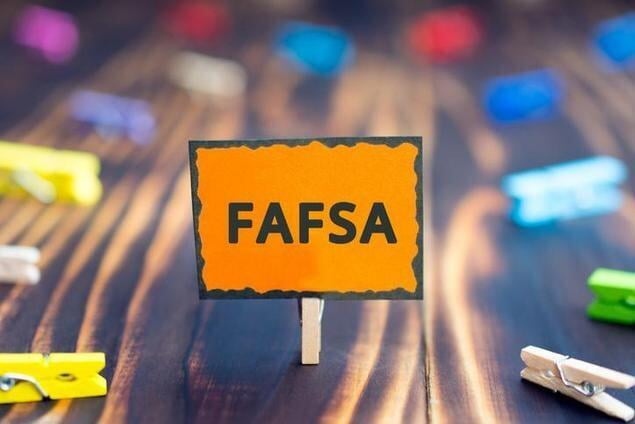
Starting Oct. 1, current and prospective college students and their families can complete the Free Application for Federal Student Aid, otherwise known as the FAFSA, for their share of $150 billion in federal student aid (including grants, loans and work-study) for the 2021-2022 school year.
Colleges often distribute student aid funds on a first-come, first-serve basis in order of when students complete the financial aid applications, and this year it will be more important than ever that students complete the FAFSA as soon as possible.
Because while the share of families filing the FAFSA has been decreasing in recent years, the economic fallout of the coronavirus pandemic is expected to lead to an increased need for financial support.
Discover Student Loans polled 1,500 parents with college-bound teens in early March and again in May. They found that 48% of parents lost income as a result of the pandemic, and 44% said they can not afford to pay for as much of their child’s education as they had originally planned.
As a result, 39% of those who did not plan to apply for federal aid in March, by May said they will. This increased need — and increased competition — means that applying early will be especially important.
“Filling out the FAFSA is a critical step in the college financing process since schools use it to determine eligibility for federal, state and institutional aid, including grants and scholarships,” explains Kate Manfred, Discover’s senior vice president of student loans. “The FAFSA becomes available on October 1, and some schools award financial aid on a first-come, first-served basis. That’s why it’s so important for families to fill out the FAFSA as soon as it becomes available — because it increases the likelihood a family will receive an aid amount they are comfortable with. There’s really no downside in applying early, but there is a potential downside of waiting and missing out on aid.”
And while many families’ financial circumstances may likely change over the next several months because of the pandemic, Manfred says it is best to apply first and make adjustments later, as needed.
“Unfortunately, due to the nature of the ongoing pandemic, the timing at which Covid-19 impacts families may be unique, and things may change after families fill out their FAFSA,” she says. “If that’s the case, there is an appeals process families can take advantage of to update their financial aid decision.”
Don’t miss out on financial aid
“The number of families filing the FAFSA has been headed in the wrong direction for the past couple of years: 71% of families reported filing last year, down from 77% in 2018-19, and 83% in 2017-18,” says Sallie Mae spokesperson, Ashley Boucher, citing her organization’s annual ‘How America Pays for College’ report and implying that more families should apply. “Naturally, in light of Covid-19 and economic uncertainty, we may find more families looking for ways to keep those dollars in their wallets or bank accounts this year. That’s why the FAFSA becomes more important than ever. Students and families need to file in order to be eligible for this aid.”
She continues, “Families might be tempted to wait to file. In reality, though, it’s important to file on or close to October 1, regardless of whether your income has changed. File now, and then request a special circumstances form from your college’s financial aid office. This will kickstart a conversation where you can explain your situation, and appeal for more aid.”
Boucher stresses that all families with college students should complete the FAFSA, even if they think they earn too much to qualify, explaining that in 2019, some 43% of families reported not completing the FAFSA because they believed they wouldn’t qualify for any aid.
But, there is no official income cut-off to apply for federal student aid.
“The reality is, nearly all who apply will qualify for some,” says Boucher.
“We’ve seen around 85% of students receive some form of financial aid,” says Manfred. “And especially in these unprecedented times, we encourage families to fill out the form every year even if they don’t think they’ll quality or need the aid.” By Abigail Hess

 (630) 841-3193
(630) 841-3193